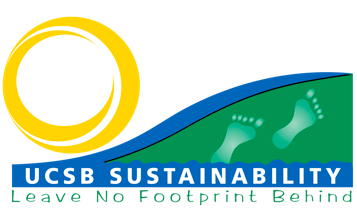Brian DePalma
Writer
Photo from bizzcommucsb.com
Every one of us has the potential to influence the environment of tomorrow. The University of California Santa Barbara’s student involvement is indicative of the fruitful endeavors of youth, earning a reputation as the most sustainable campus in the state. UCSB won three Best Practice Awards in the annual Energy Efficiency and Sustainability competition, tying with University of California Berkeley for most awards in the 2012 standings.
The three awards given to UCSB include: Sustainable Foodservice, for Root 217 Café at the University Center; Student Sustainability Program, for the Plastics Pollution Coalition; and Sustainability Innovations, for the South Coast Sustainability Summit. The California Higher Education Sustainability Conference conducted the competition; their judges were impressed with the oasis of youth, also known as UCSB.
Towards the end of the spring quarter, the UCSB Bookstore will be the first UC campus to replace plastic bags with compostable alternatives, with the driving force behind this action being the Plastics Pollution Coalition. As a local chapter of an international alliance of environmentally progressive activists, the PPC has already had their inaugural “Day Without A Bag” on April 2. During this event distributions of plastic bags were frozen- the sustainable alternative was 3,500 reusable canvas bags.
“It is just very exciting to see the energy that students bring to the plastic pollution issue being translated into action and broader inclusion of young people in reducing dependence on disposable plastic,” said Ben Bezark, PPC program manager for Plastic Free Campuses.
Another helping hand in organic, sustainable alternatives at UCSB campus is Root 217 Café. There, locally grown produce is delivered daily along with grass-fed, hormone free beef. The compostable packaging heads into separate bins for building compost, and almost their entire menu is organic. The café strives to maintain an affordable price for students with hamburgers at $4.50 a piece inside biodegradable packaging.
“We will continue to source more sustainable products and will always choose those products over non-sustainable ones provided they are affordable,” said Sue Hawkins, UCen dining service director. The UCen recycled 6,000 gallons of used cooking oil via a local company that creates biodiesel for alternative fuel.
Alternative options towards sustainability reflect global concerns that unite common people over a common good and this can be found here at UCSB. Three Best Practice Awards in the Energy Efficiency and Sustainability competition established UCSB as a symbol of change.











